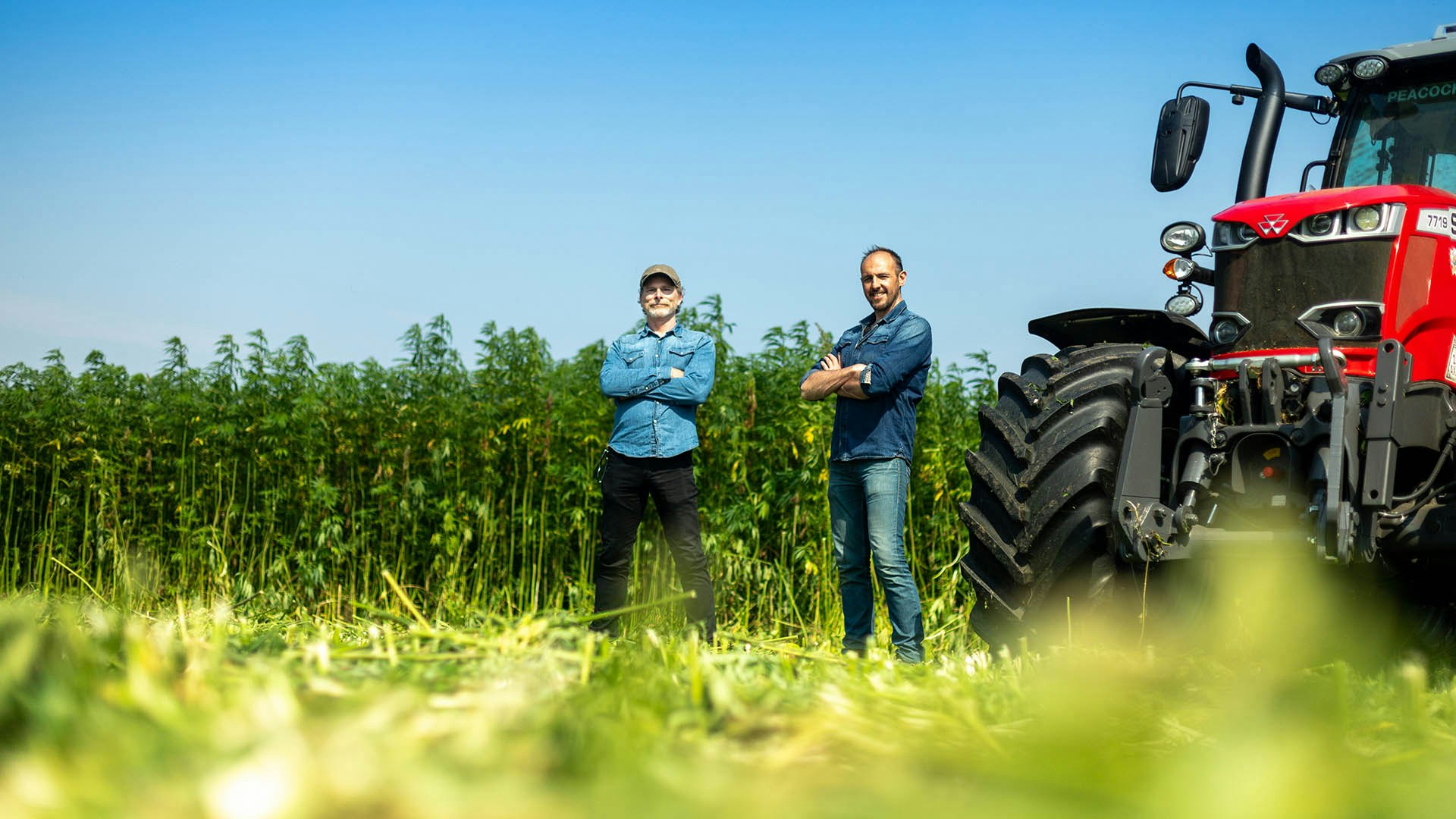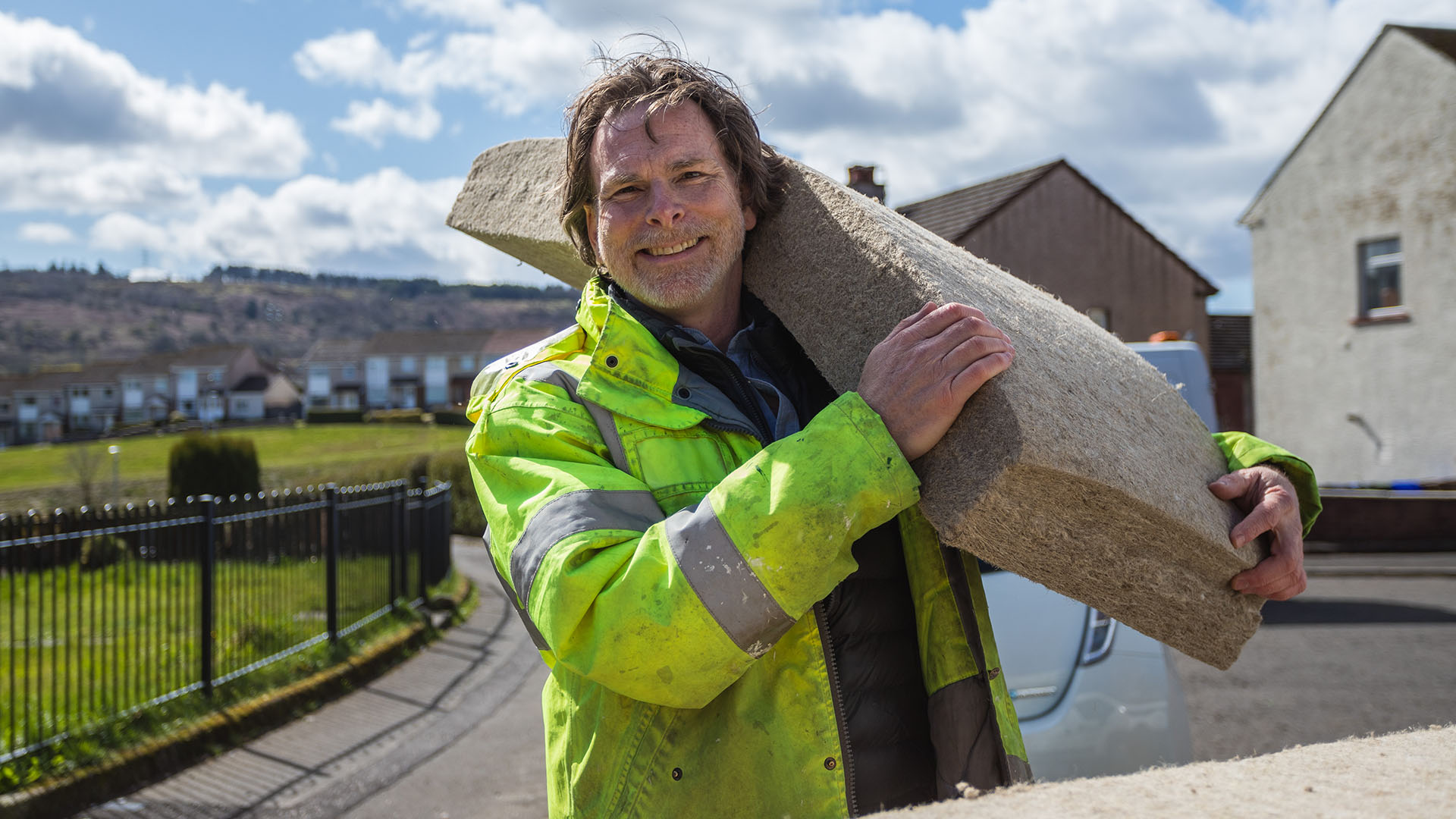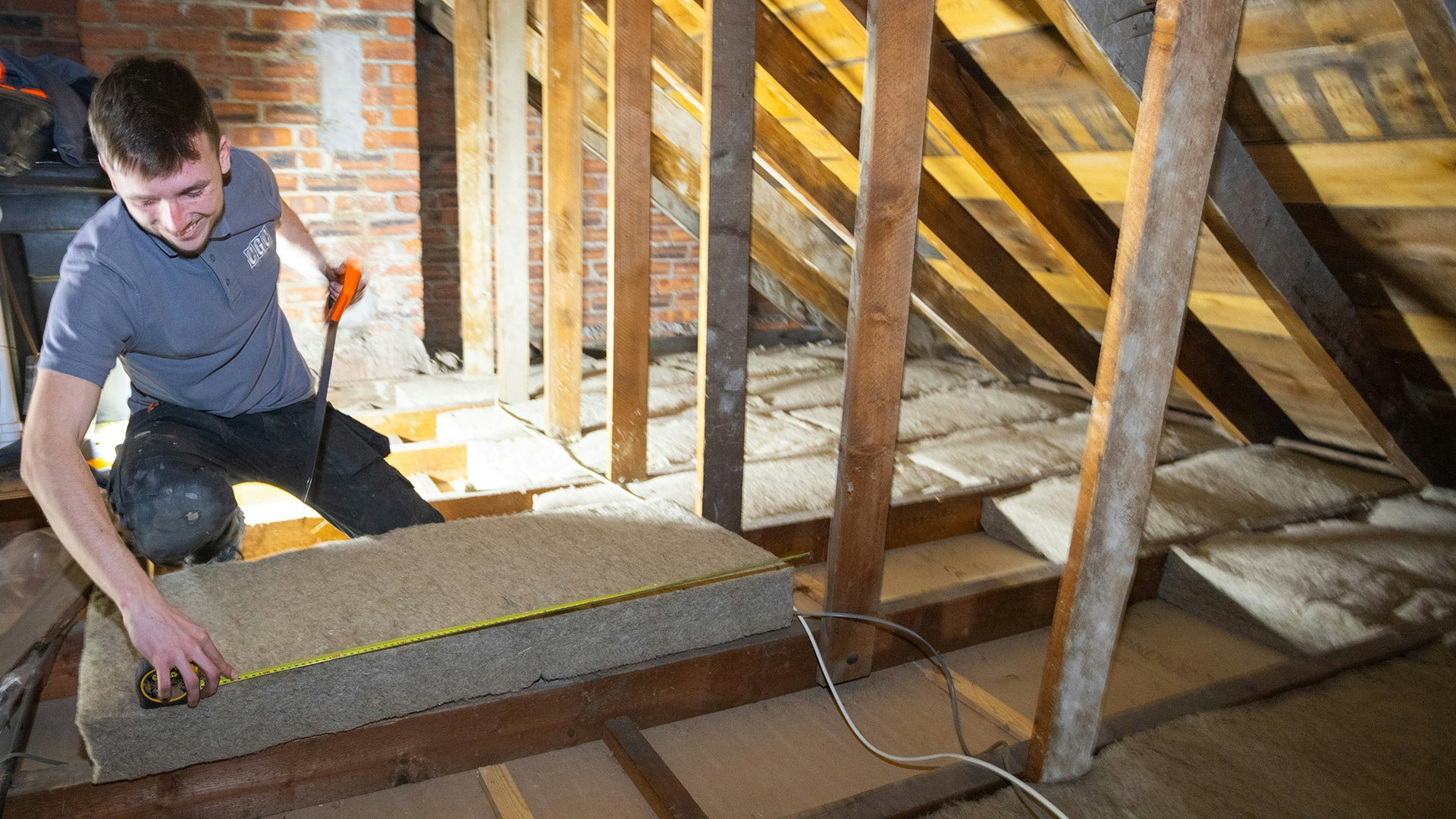Natural insulation manufacturer IndiNature is on a mission to clean up the construction industry. Co-founder, CEO and CAT graduate Scott Simpson looks at what they’ve achieved so far and reveals exciting plans to scale up.

The construction industry is responsible for almost half of UK carbon emissions, including emissions from heating and cooling as well as from manufacturing products and in the construction itself. Much of the UK’s housing stock is cold, damp and poorly insulated, leading to wasted energy, fuel poverty and health problems.
At IndiNature, our aim is to help transform the industry through mass manufacture of natural insulation systems made from UK-grown fibres. IndiNature is a materials R&D company based in Scotland, with a manufacturing subsidiary. Along with other co-founders I set up the company in 2018 because of the need for natural fibre construction insulations to be widely available in the UK and globally.
Most conventional insulations, like mineral wools and petro-foams, have massive carbon emissions in manufacture, are made from nonrenewable resources and end up in landfill – plus they are horrible on your skin and your lungs when cutting and handling.
Instead, IndiNature uses UK-grown industrial hemp to create insulation products that are reusable, recyclable and biodegradable – and a joy to work with. This includes: IndiTherm, a flexible thermal insulation ‘batt’ made from UK crops; IndiBoard, a semi-rigid, multipurpose thermal and acoustic insulation board; and IndiBreathe, which combines the two to create a highly energy-efficient system. Of these, IndiTherm is now being manufactured and is available for use in UK households.
Locking in the carbon
Rather than contributing to emissions during manufacture, our products are designed to be carbon negative. We’ve had a cradle-to-gate Carbon Life Cycle Assessment done on our IndiTherm insulation, accounting in great detail for everything from the point when our farmers plant their seeds through to transporting to our factory and the amount of energy our factory uses.
This assessment showed that our process uses one-eighth of the energy inputs of conventional rockwool or glasswool insulations, partly due to our renewable crops pulling carbon dioxide out of the air when they photosynthesise.
All of this together means IndiTherm actually has a net capture of carbon by the time it reaches the factory gate, ready to be shipped out locally. If IndiTherm is used instead of rockwool in an average UK home, this could save 4.4 tonnes of CO2e off the upfront carbon.
Reducing waste, improving performance
At end of life our 100% natural products can be easily reused, reprocessed into the same products again or even hotcomposted, all while being durable in a building even in the most extreme environments.
We use local industrial hemp not only because of its sustainability, but also because it has incredible performance advantages, including rigidity to resist slumping in buildings and vapour ‘breathability’ to reduce risk of trapped moisture, meaning buildings last longer and have fewer damp problems. It also has good thermal and acoustic properties.
The use of natural materials means we have no toxic volatile organic compounds (VOCs) from products off-gassing into homes or offices, and builders love our materials because they’re soft to touch and there’s no petrochemical or glass dust blowing about during installation.
Upscaling UK production
Natural fibre insulations are fantastic in so many ways, but most are imported to the UK and are expensive, plus they have additional carbon footprints from the long freight distances. Currently there are severe shortages of imported construction insulation in the UK due to Brexit, Covid and the Suez Canal backlog.
To help grow the UK market, we are raising capital to set up the first dedicated high capacity natural fibre insulation plant in the country, due to open in the Scottish Borders next year. We are outsourcing until then. As well as our IndiTherm flexible batt insulation, we’ll also be making our higher density insulating and acoustic IndiBoards.
At capacity, the factory will capture 10,483 tonnes of CO2 a year; over 30 years, this will be the equivalent to planting 5,200,258 trees.

Teamwork through tough times
The past four and a half years have been tough. We’ve been through a lot of highs and lows as we’ve developed products and processes and raised capital from nothing – but our team is so motivated to make a difference.
We couldn’t have gotten this far without an amazing team, who are all driven by the same values and bring an incredible range of knowledge, skills and experience. For example, our fantastic architectural technologist Nikita Wolfe-Murray has a Masters in sustainable design as well as experience of hands-on construction work. Having someone like Nikita on the team is invaluable, designing the factory and product install guide and helping support customers asking about appropriate applications and systems for a wide range of new builds and retrofits.

The CAT connection
The success of IndiNature is in a large part thanks to my time at CAT. Signing up for a CAT Masters degree was the best decision I ever made – a fantastic experience full of practical and theoretical work and, most importantly, I was studying amongst some really interesting students and lecturers from a wide range of backgrounds. In the Welsh hills to boot!
I was working in grassroots local community development in Scotland before CAT. The housing conditions people were living in were shocking – some of the most vulnerable people were living in fuel poverty because their homes were hard to heat. Buildings were badly designed, which meant they were cold and damp and often had a lot of black mould. That motivated me to go to CAT to learn how to improve the built environment, where I also learned about the enormous impacts the construction sector has on the climate, the environment and people’s health.
CAT gave me the time to experiment. I was able to use a lab to work on my dissertation, which first focused on scaling up industrial hempcrete (lime + hemp and clay + hemp) pre-cast blocks, and I learnt a lot of technical skills to help with choosing appropriate materials and systems for different buildings, systems and climates.
CAT was also useful in informing our current factory plans – we’re working on how to turn it into a beautiful cleantech showcase over time, using renewable tech and good design principles. I think the best thing about CAT is that it opened up a global network of like-minded people doing good work. The natural materials market continues to grow globally and we all need to work together to scale it up. We have a planet to cool!
The IndiNature timeline
2001-14: Working in local community development motivates Scott to help provide people with better housing
2012-13: Scott studies at CAT, conducting lab-based research on hemp insulation for his dissertation
2015-16: Scott carries out deep-green retrofit and extension on family home using natural materials
2016: Scott and three co-founders – Sam Baumber, fellow CAT graduate Euan Lochhead, and Ewan Mealyou – begin IndiNature
2017: IndiNature wins Best Circular Economy Initiative
2018: IndiNature places in top six of European Cleantech Startups
2020: The company raises over £1,000,000 to date
2021: The company secures a £100,000 grant for its biotech research partner University of Edinburgh
2021: IndiNature starts outsourced manufacturing
2022: IndiNature’s first UK factory due to open
IndiNature is looking forward to seeing hemp insulation in a lot more buildings this year. If you have a project in mind you can find out more at www.indinature.co or get in touch at sales@indinature.co
- Graduate School
- Zero Carbon Britain
- Climate Change
Related Topics
Email sign up
Keep up to date with all the latest activities, events and online resources by signing up to our emails and following us on social media. And if you'd like to get involved and support our work, we'd love to welcome you as a CAT member.
